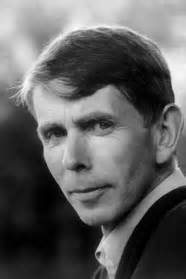A Quote by Mark Kurlansky
How you solve your problems are quite different. In non-fiction, you can always go back to the research, whereas in fiction, you have to go back to yourself - which is a little bit scary.
Related Quotes
I think, when you are writing non-fiction, you feel there's an obligation to get it absolutely right, so all your factual details have to be, have, you know, to go through a long list of them and tick them. I'm not saying that's not important in fiction, but I think you have a bit more leeway; you can suit yourself.
Go back, go back to sleep. Yes, you are allowed. You who have no Love in your heart, you can go back to sleep. The power of Love is exclusive to us, you can go back to sleep. I have been burnt by the fire of Love. You who have no such yearning in your heart, go back to sleep. The path of Love, has seventy-two folds and countless facets. Your love and religion is all about deceit, control and hypocrisy, go back to sleep. I have torn to pieces my robe of speech, and have let go of the desire to converse. You who are not naked yet, you can go back to sleep.
If you go all the way back, I've always written science-fiction, I've always written fantasy, I've always written horror stories and monster stories, right from the beginning of my career. I've always moved back and forth between the genres. I don't really recognise that there's a significant difference between them in some senses.
Half of the modern world goes back as far as Pearl Jam. The real historians go back to U2. But they need to go back further. They have to go back to the '50s and '60s, where things started. That's how you get to be your own personality, by studying the masters. Rock and roll was white kids trying to make black music and failing, gloriously!
There're some places that are more difficult or dangerous to navigate and I wouldn't look forward to going back. Like I'd much rather go back to Afghanistan - which fascinates me - quicker than I'd go back to spend a week walking around Nairobi, Kenya, which is a great and easy way to get yourself killed.
The book Dynamic Programming by Richard Bellman is an important, pioneering work in which a group of problems is collected together at the end of some chapters under the heading "Exercises and Research Problems," with extremely trivial questions appearing in the midst of deep, unsolved problems. It is rumored that someone once asked Dr. Bellman how to tell the exercises apart from the research problems, and he replied: "If you can solve it, it is an exercise; otherwise it's a research problem."

































